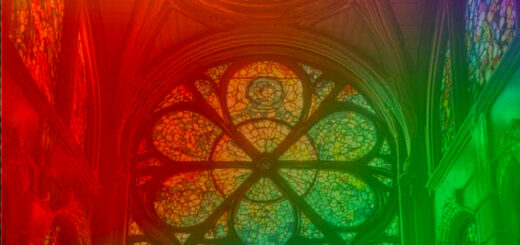The Christian churches faced with the sin of homophobia
Article by Alejandro Massa Varela* Published on the website Pijama surf On February 12, 2022, freely translated by Sara Pasini
In this article I will present the points of view of the various churches, Catholics and Protestants (on homophobia), subjecting them to an exercise of comparison.
To introduce the topic, I decided to start with some deliberately scientific and non -religious definitions, and then enter the theme of their relationship with Christianity and the conception of sin.
In the event that someone is not familiar with the term, homophobia is thataversion, devoid of secondary justifications, towards people or homosexual and bisexual behaviors, which can result in discriminatory or aggressive actions and gestures both in the immediate and longer periods.
A strong homophobia therefore has manypathological components. It involves obsessive thoughts and behaviors, often almost of a borderline nature, that is, impulsive nature, which expose both the homophobic person and those who are around them with dangerous situations. It also reveals a lack of emotional intelligence, adaptability, and a strong frustration.
Some Christian confessions are particularly adverse to LGBT+ activism or sexual intercourse between people of the same sex. This emphasis varies according to the communities, but there is a widespread refusal, for example, between Pentecostal evangelicalism, the booty churches, the ventilations, the Orthodox and groups with singular doctrines such as the Mormons and Jehovah's Witnesses.
The most striking case is that of the Battista Church of Westboro, in the United States, an extremely homophobic, biblically fundamentalist and with a precise idea of a family unit, which pointed out the air accidents or the diagnoses of cancer as punishment inflicted on the company by a Iato god due to homosexual people. It is in fact famous for its pickets equipped with banners with phrases such as "God hates the fagot", "A plane crashes, God laughs", "sodomy should be punished with death" or "Thanks to God for AIDS".
Most of the churches prohibit homosexual acts and marriage between people of the same sex,But generally also condemns homophobia(with some exceptions). According to their point of view, all human beings deserve respect and to be valued in their integrity. Ara is one of the seven capital sins, and It is a contradiction to be considered Christians and at the same time persevere in hatred. Thus, he asked how the Roman Catholic one, while not accepting the sexuality of homosexual people, as it takes place outside the boundaries of sacramental marriage life, consider a sin to discriminate these people in their social and family life, andworse still inflicting them attacks, both verbal and physical.
The Catechism of the Catholic Church (part third, second section, second chapter, article 6, paragraph 2357), while continuing to argue that homosexual acts are intrinsically disordered, underlines a clear difference between a person born homosexual, whose condition cannot change, and sexual acts Among lesbians or gay, not allowed.
From this point of view,being homosexual is not a sin in itself, as well as even keeping homosexual relationships casti or friendly. Homosexual people deserve a family, pastoral and psychological support network. God does not judge people who are attracted to their own sex, not being able to change their condition, which is part of their identity. Therefore, the Catholic Church does not exclude them from the sacraments,as long as they maintain a celibate life.
It is also worth noting that some national episcopal conferences, minority groups and alternative theologians within Catholicismthey are in favor of a revision of the sexual morality of the Church, as well as the purpose of the life of the couple and the sacred order, to respond to the experiences and problems of an evolving Christian society. Some exponents of this critical theology should be reported, such as Bishop Emeritus Raúl Vera and the philosopher Gianni Vattimo, or some episcopal conferences, such as those of Belgium and Germany.
Although in smaller numbers, there are also churches that do not consider gay or lesbian sexuality a sin in itself. Some even admit The marriage or blessing of same sex couples. For example, the episcopal church of the United States of America, a province of Anglican communion, not only accepted the marriage between people of the same sex, but in 2004 he hasordained bishopof the diocese of New HampshireA publicly gay man with a partner, Gene Robinson.
Even most of the national churches of Lutheran communion, in countries such as Iceland, Denmark and Norway, together with some presbyter, evangelical or ecumenical churches, have changed their definition of marriage to include same sex couples. Internationally, the first openly lesbian woman who became the bishop was the theologian Eva Brunne of the Lutheran Church of Sweden, assigned to the diocese of Stockholm.
In general, it is true thatErotic intimacy between same sex couples and the disguiseismThey are practices prohibited or explicitly censored by some passages of the Bible, especially in the books of the deuteronomistic tradition and in some Paoline letters (without any mention of lesbian relationships, it must be said). For the same reason, most of theChurches does not accept the relationship between people of the same sex, nor marriages between people of the same sex.
However, some theologians and the minority Christian denominations mentioned above believe that the statements against homosexuality in the Bible refer more to the cultural notions of the time in which it was written, and should not be applied to the entire love life of today homosexual people. Since today we have a deeper understanding of the phenomenon, they suggest a careful rereading, in light of the entire biblical corpus, in particular the Gospel, and the psychological facts involved.
Returning to scientific questions, despite the objection of some religious and political groups, the World Health Organization, as well as psychiatric and psychological associations internationally and in most countries, no longer consider homosexual people as pathological subjects at regardless (as happened until the beginning of the 20th century). Although this sexual orientation is considered an atypical psychological phenomenon, their sexual behavior is not, as such, a cause of mental distress; therefore, there is no disease, sinceThere is no mental pathology if a condition, in itself, does not cause distress.
This, of course, unless there is an added factor, for example that a person has these tendencies due to trauma, or that he experiences his homosexual orientation as a curse, due to various factors.
The fact is that same-sex attraction is a multifactorial condition, the expression and experience of which varies from person to person, and which does not have absolute characteristics. Homosexual behaviors, like atypical behaviors in general, can be due to a series of hormonal, neurophysiological, genetic, embryological, psychological, environmental causes, etc. It is a phenomenon also present in other generically binary animals.
Whatever your opinion on the private life of gays, lesbians and bisexuals, like the author of this essay, or on activism and LGBT+ people, whether you are for or against, whatever your beliefs on the matter,It is a fact that homophobia has harmful characteristics, and that extremism can lead to violence; therefore, it can be linked to the notion of sin, for the reasons set out above.
In my opinion, it is a gross mistake to oppose consensual relationships between two adult women or two men that do not involve third parties; worse still, punish them socially or criminally, as still happens in various nations of the world (around seventy), even with the death penalty (thirteen, up until a couple of years ago).
It is undeniable that many churches have lax or reluctant positions on homosexuality. By negligence I mean that they ignore or deny very clear psychological, biological and sociological evidence about the lives that homosexual people lead and the origin of their tendencies. In any case, it is understandable that Christian communities have their own moral doctrine and their own vision of human sexuality, but I don't see much point in avoiding a deeper analysis that involves the truths of faith and what we know today about homosexuality .
* Alejandro Massa Varela(1989) is a poet, essayist and playwright, as well as a historian by training. Among his works we remember the bookEl Ser Creado o Ejercicios sobre mística y hedonismo, with a prologue by the philosopher Mauricio Beuchot; the collection of poemsEl Aroma del dardo or Poemas para un shunga de la fantasy and theatrical worksBastedad or ¿Quién llegó a devorar a Jacob?(2015) eThe body of the Sun or Dialogue to fall in love with Hell(2018). His poetry has been awarded several awards in Mexico, Spain, Uruguay and Finland. He is currently director ofAsociación de Estudios Revolución y Serenidad. Channel YouTube: Asociación de Estudios Revolución y Serenidad
Original text: The sin of homophobia: the perspective of distinct churches of Christian orientation






